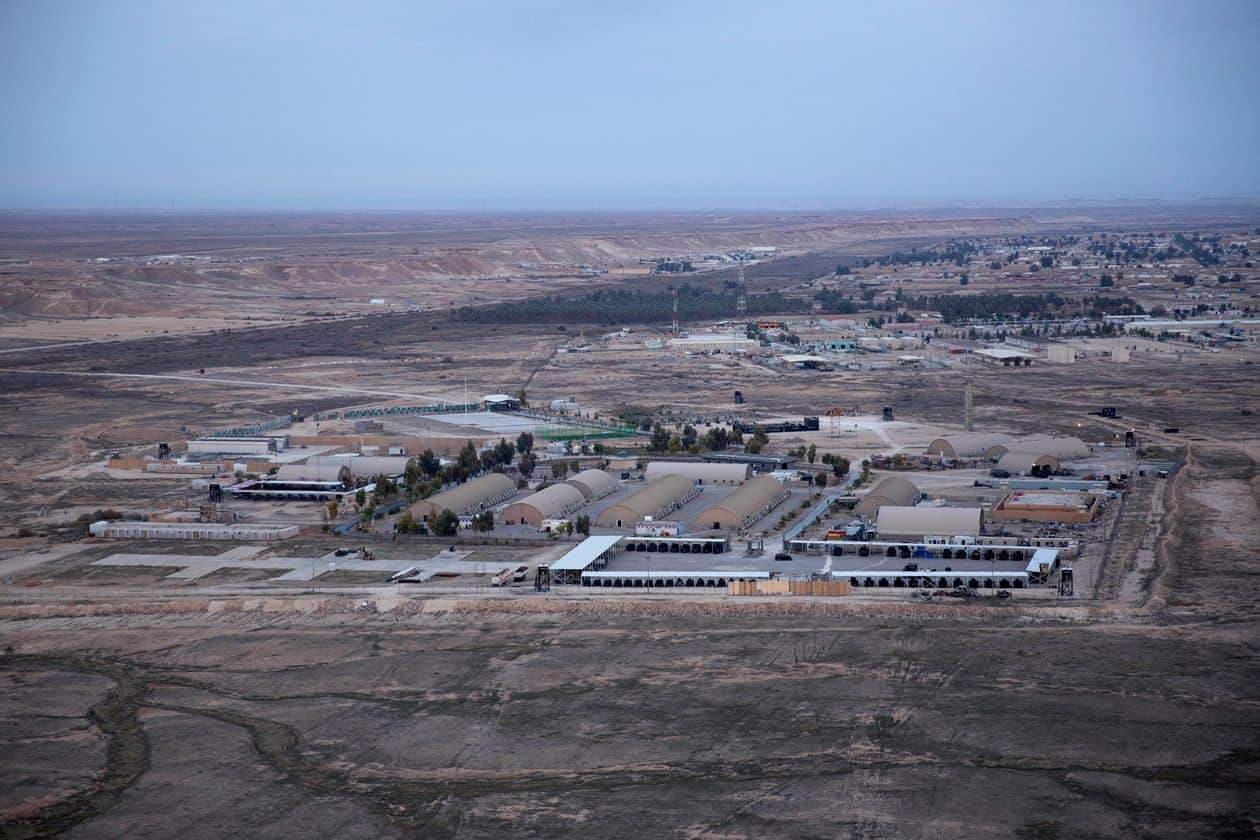Rockets Hit Iraq Base Hosting U.S. Troops

Ten rockets struck a military base used by U.S. forces in Iraq amid heightened tensions between Washington and Iran-backed militant groups in the country.
No one was hurt in the attack on Al Asad base in Iraq’s Anbar province on Wednesday morning, according to an Iraqi security forces spokesman. A spokesman for the U.S.-led military coalition confirmed the attack but didn’t comment on whether anyone was hurt. There was no immediate claim of responsibility. An Iraqi news agency, Sabreen, which supports Iranian-allied militias, published photos and initial reports of the attack.
The rocket barrage comes less than a week after a U.S. airstrike targeted Iranian-allied Iraqi militias in neighboring Syria. The strike was a response to a deadly rocket attack on a U.S. air base in northern Iraq that was claimed by an Iranian-backed militia.
The attacks threaten to add pressure on the Biden administration as it attempts to start negotiations with Tehran over its nuclear program. Iran at the weekend rejected a European Union offer to hold informal talks, which the U.S. would attend as a guest, aimed at reviving a 2015 agreement that limits Iranian nuclear activity in return for sanctions relief.
President Biden has said he intends to rejoin the Iran nuclear deal and use it as a platform for follow-on discussions about Iran’s conventional military footprint, including its missile program and support for militias in the Middle East. Iranian officials insist that any discussion of regional security issues must be separate from nuclear talks, as they were in the negotiations leading up to the 2015 agreement.
Wednesday’s attack also comes two days before Pope Francis is scheduled to arrive in Iraq for a long-awaited visit, during which he will attempt to promote better relations between Iraq’s Muslim and Christian communities.
Iraqi security forces said 122-millimeter “Grad” rockets were used, slightly larger than those used in previous attacks, including the one in February that killed a contractor on a U.S. base in the city of Erbil, in Iraq’s semiautonomous Kurdistan region.
An Iraqi security official said the rockets had been fired from farmland next to Al Asad base. Security officials also released photos that they said showed a truck that had been used to launch the rockets.
Iraqi security forces are leading the response and investigation into the attack, said U.S. coalition spokesman Col. Wayne Marotto in a tweet.
A large base used by both Iraqi and American-led coalition forces, Al Asad was also the target of an Iranian missile attack in January 2020 in the aftermath of a U.S. airstrike that killed Iran’s Maj. Gen. Qassem Soleimani and a top Iraqi paramilitary leader.
Iraqi militant groups allied with Iran have vowed to avenge the killings of Gen. Soleimani and the paramilitary leader, Abu Mahdi al-Muhandis, saying that their response could continue over a long period.
Pro-Iran militants also said they had a right to respond to the U.S. airstrike in Syria last week, which killed at least one member of an Iraqi militia.
Photo: An Iraqi security official said the rockets had been fired from farmland next to Al Asad base, pictured in December 2019. - NASSER NASSER/ASSOCIATED PRESS




